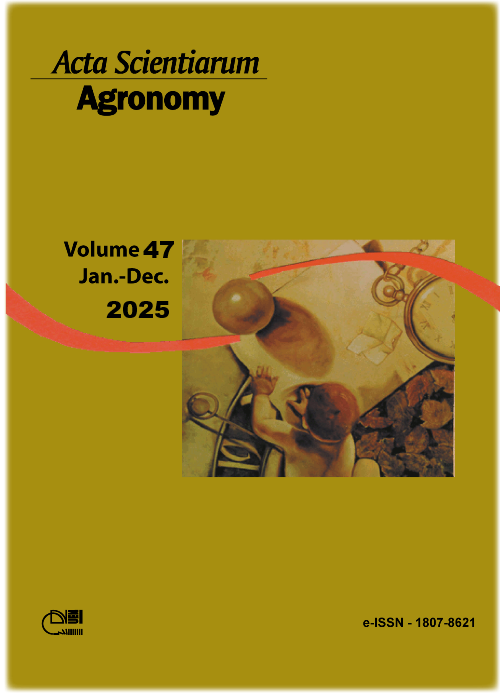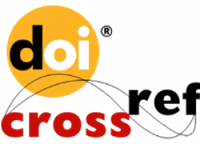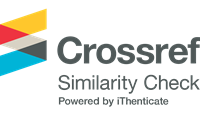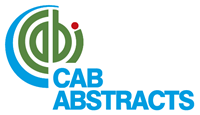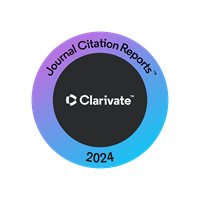Estimation of inbreeding depression in Psidium guajava through seed attributes using S0, S1, and S2 families
Abstract
Inbreeding depression, resulting from self-pollination or mating between closely related plants, primarily impacts quantitative traits. This study aimed to assess inbreeding depression in guava seeds from two generations of self-pollination (S1 and S2) relative to open-pollinated (S0) seeds, focusing on seed physical and physiological attributes. Physical seed quality was assessed by determining the weight of 1,000 seeds and analyzing seed images using the GroundEye® instrument. Physiological quality was evaluated through germination and accelerated aging tests, along with the emergence speed index, root length, and shoot length. The results revealed no inbreeding depression in the first selfing generation. However, mild levels of inbreeding depression were observed across all traits in the second selfing generation. This study underscores the importance of understanding inbreeding depression dynamics in guava seeds, particularly in subsequent generations of self-pollination, for effective breeding and seed quality management.
Downloads
References
Alves, J. E., & Freitas, B. M. (2007). Requerimentos de polinização da goiabeira. Ciência Rural, 37(5), 1281-1286. http://doi.org/10.1590/S0103-84782007000500010
Ambrósio, M., Viana, A. P., Ribeiro, R. M., Preisigke, S. C., Cavalcante, N. R., Silva, F. A. T., Xavier, G., & Sousa, C. M. B. (2021). Genotypic superiority of Psidium guajava S1 families using mixed modeling for truncated and simultaneous selection. Scientia Agricola, 78(2), 1-9. https://doi.org/10.1590/1678-992X-2019-0179
Bernini, C. S., Paterniani, M. E. A. G. Z., Duarte, A. P., Gallo, P. B., Guimarães, P. S., & Rovaris S. R. S. (2013). Depressão endogâmica e heterose de híbridos de populações F2 de milho no estado de São Paulo. Bragantia, 72(3), 217-223. https://doi.org/10.1590/brag.2013.038
Brasil (2009). Regras para análise de sementes. Ministério da Agricultura, Pecuária e Abastecimento.
Campos, B. M., Viana, A. P., Quintal, S. S. R., Barbosa, C. D., & Daher, R. F. (2016). Heterotic group formation in Psidium guajava L. by artificial neural network and discriminant analysis. Revista Brasileira de Fruticultura, 38(1), 151-157. https://doi.org/10.1590/0100-2945-258/14
Campos, B. M., Viana, A. P., Quintal, S. S. R., Goncalves, L. S. A., & Pessanha, P. G. O. (2013). Quantification of the genetic divergence among guava accessions using Ward-MLM strategy. Revista Brasileira de Fruticultura, 35(2), 87-94. https://doi.org 10.1590/S0100-29452013000200028
Charlesworth, D., & Charlesworth, B. (1987). Inbreeding depression and its evolutionary consequences. Annual Review of Ecology System, 18(1), 237-268. https://doi.org/10.1146/annurev.es.18.110187.001321
Charlesworth, B., & Charlesworth, D. (1999). The genetic basis of inbreeding depression. Genetics Research, 74(3), 329-340. https://doi.org/10.1017/s0016672399004152
Costa, J. C. F., Mendonça, R. M. N., Silva, G. C., Silva, S. M., Pereira, W. E., & Santos, C. E. M. (2019). Rooting of herbaceous and semi hardwood cuttings of guava cv. Século XXI, under varying concentrations of indolebutyric acid. Journal of Experimental Agriculture International, 33(1), 1-9. https://doi.org10.9734/jeai/2019/v33i130135
Demidenko, E. (2013). Mixed models: theory and applications with R. John Wiley & Sons.
Falconer, D. S. (1987). Introdução à genética quantitativa (M. A. Silva, & J. C. Silva, Trad.). Imprensa Universitária.
Falconer, D. S., & Mackey, T. F. C. (1996). Introduction to quantitative genetics (4th ed.). Longman Scientific & Technical.
Gardner, C. O. (1965). Teoria de genética estadística aplicable as lãs medias de variedades, sus cruces y poblaciones afines. Fitotecnica Latinoamericana, 2, 11-22.
Gonçalves, R. W., Costa, M. D., Rocha Júnior, V. R., Costa, M. R., Silva, E. S. P., & Ribeiro, A. M. F. (2011). Efeito da endogamia sobre características reprodutivas em um rebanho da raça Mangalarga Marchador. Revista Brasileira de Saúde e Produção Animal, 12(3), 641-649.
Maitan, M. Q., Viana, A. P., Vieira, H. D., Silva, C. C. A., Rodrigues, D. L., & Leal, L. S. S. (2020). Physiological responses of seeds from full-sib guava families to different substrate temperatures. Revista Brasileira de Fruticultura, 42(6), 1-8. http://dx.doi.org /10.1590/0100-29452020278
Maguire, J. D. (1962). Speed of germination aid in selection and evaluation for seeding emergence and vigor. Crop Science, 2(2), 176-177. https://doi.org/10.2135/cropsci1962.0011183X000200020033x
Medina, J. C., Castro, J. V., Sigrist, J. M. M., Martin, Z. J., Kato, K., Maia, M. L., Garcia, J. L. M., & Leite, R. S. S. F. (1991). Goiaba: cultura, matéria prima, processamento e aspectos econômicos (2. ed.). Instituto de Tecnologia de Alimentos. (Série Frutas Tropicais, 6).
Oliveira, N. N. S., Viana, A. P., Quintal, S. S. R., Paiva, C. L., & Marinho, C. S. (2013). Analysis of genetic distance between access of the gender Psidium by routemarkers ISSR. Revista Brasileira de Fruticultura, 36(4), 917-923. https://doi.org/10.1590/0100-2945-413/13
Parmar, J. P., Tiwari, R., Keshav, K. G., Yadav, L., & Upadhyay, N. (2018). Effect of Indole 3-butyric acid (IBA), rooting media and their interaction on different rooting and growth characteristic of air-layers in guava (Psidium guajava L. cv. L-49). Journal of Applied and Natural Science, 10(1), 241-246. https://doi.org10.31018/jans.v10i1.1611
Pessanha, P. G. O., Viana, A. P., Amaral Júnior, A. T., Souza, R. M., Teixeira, M. C., & Pereira, M. G. (2011). Assessment of genetic diversity in access to Psidum spp. via RAPD markers. Revista Brasileira de Fruticultura, 33(1), 129-136. https://doi.org 10.1590/S0100-29452011000100018
Quintal, S. S. R., Viana, A. P., Campos B. M., Vivas, M., & Amaral Junior, A. T. (2017). Selection via mixed models in segregating guava families based on yield and qualitytraits. Revista Brasileira de Fruticultura, 39(2), 859-866. https://doi.org/10.1590/0100-29452017866
Ramalho, M. A. P., Santos, J. B., Pinto, C. A. B. P., Souza, E. A., Gonçalves, F. M. A., & Souza, J. C. (2012). Genética na agropecuária (5. ed.). UFLA.
Silva, F. A., Correa, C. C. G., Carvalho, B. M., Viana, A. P., Preisigke, S. C., & Amaral Júnior, A. T. (2021). Novel approach to the selection of Psidium guajava genotypes using latent traits to bypass multicollinearity. Scientia Agricola, 78(2), 5-13. https://doi.org/10.1590/1678-992X-2019-0081
Silva, F. A., Viana, A. P., Corrêa, C. C. G., Carvalho, B. M., Sousa, C. M. B., Amaral, B. D., Ambrósio, M., & Gloria, L. S. (2020). Impact of Bayesian inference on the selection of Psidium guajava. Scientific Reports, 10, 1-9. https://doi.org 10.1038/s41598-020-58850-6
Silva, J., Ramos, A. R., Amorim, D., Zanotto, M. D., & Sartori, M. M. P. (2019). Inbreeding depression of progenies of castor bean, from of the variety FCA-PB, results of three types of pollinations. Journal of Agricultural Science, 11(16), 68-79. https://doi.org 10.5539/jas.v11n16p68
Tuler, A. C., Proença, C. E. B., & Costa, I. R. (2020). Psidium in Flora do Brasil. Jardim Botânico do Rio de Janeiro. http://floradobrasil,jbrj,gov,br/reflora/floradobrasil/FB24034
Vencovsky, R., & Barriga, P. (1992). Genética biométrica no fitomelhoramento. Sociedade Brasileira de Genética.
Vencovsky, R. (1987). Herança quantitativa. In E. Paterniani, & G. P. Viegas (Eds.), Melhoramento e produção de milho no Brasil (2. ed., pp. 122-201). Fundação Cargill.
Copyright (c) 2025 Mariana Quintas Maitan, Alexandre Pio Viana, Flavia Alves da Silva, Henrique Duarte Vieira (Autor)

This work is licensed under a Creative Commons Attribution 4.0 International License.
DECLARATION OF ORIGINALITY AND COPYRIGHTS
I Declare that current article is original and has not been submitted for publication, in part or in whole, to any other national or international journal.
The copyrights belong exclusively to the authors. Published content is licensed under Creative Commons Attribution 4.0 (CC BY 4.0) guidelines, which allows sharing (copy and distribution of the material in any medium or format) and adaptation (remix, transform, and build upon the material) for any purpose, even commercially, under the terms of attribution.
Funding data
-
Fundação Carlos Chagas Filho de Amparo à Pesquisa do Estado do Rio de Janeiro
Grant numbers E-26/010.001275/2015 -
Coordenação de Aperfeiçoamento de Pessoal de Nível Superior
Grant numbers Code 001





